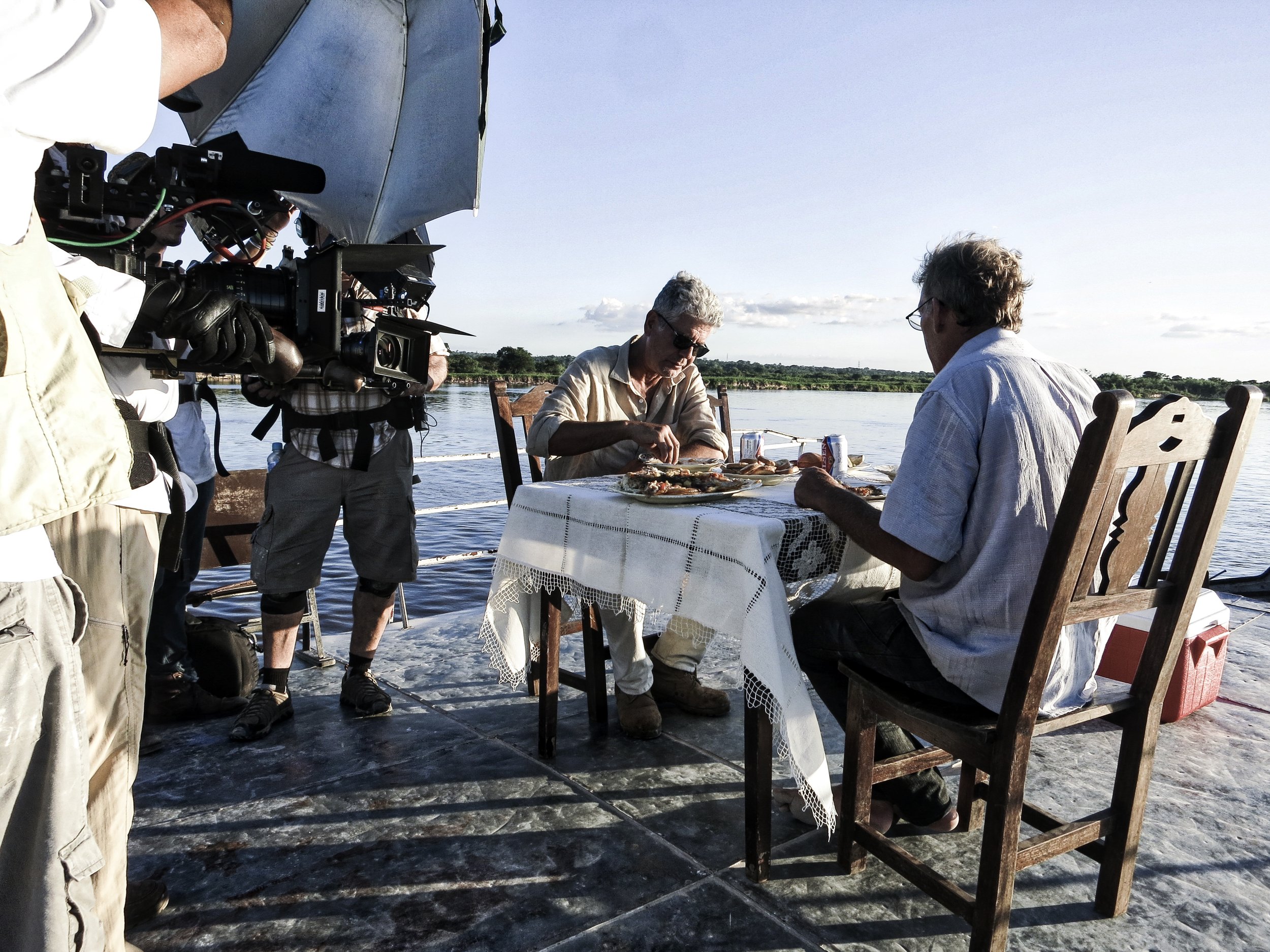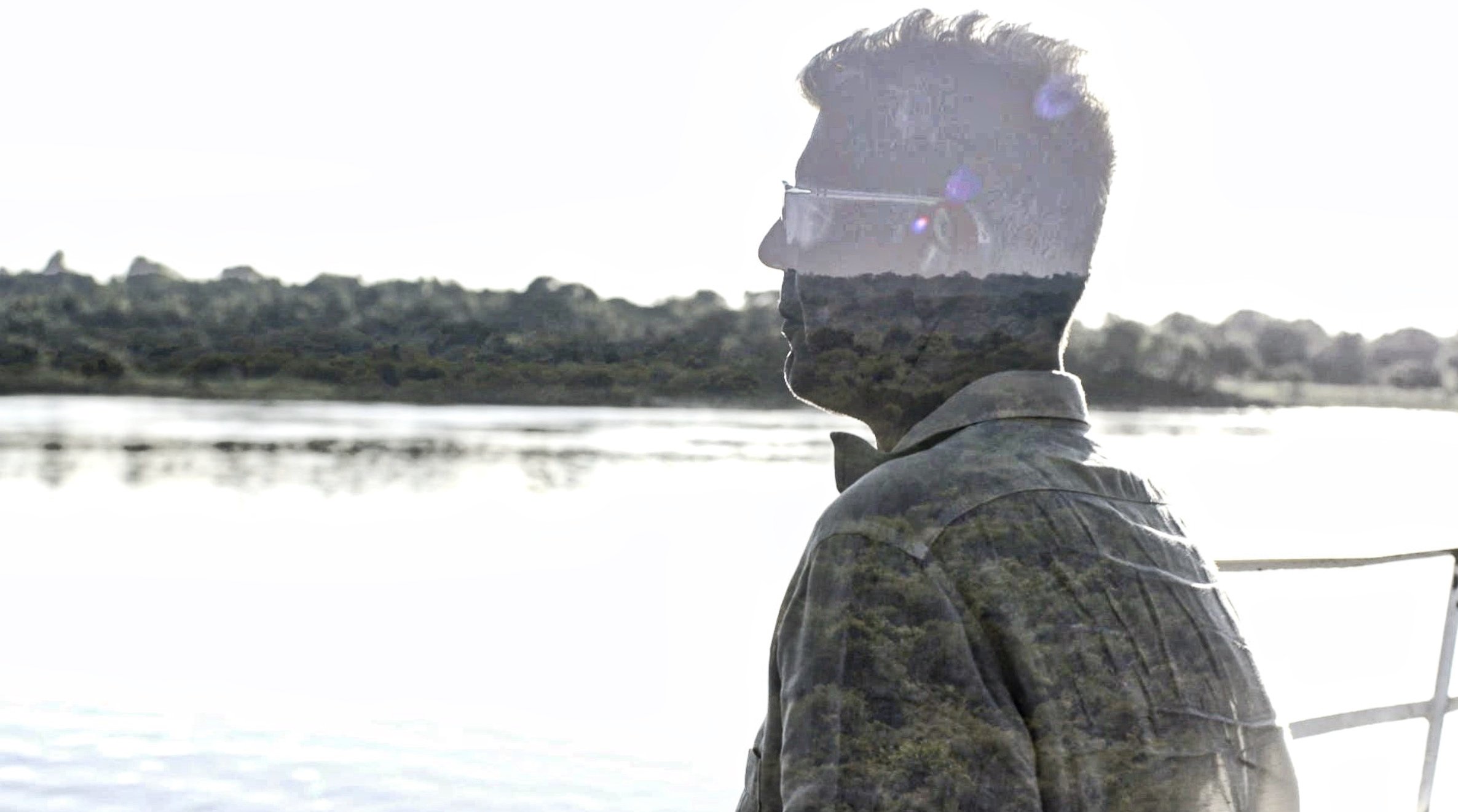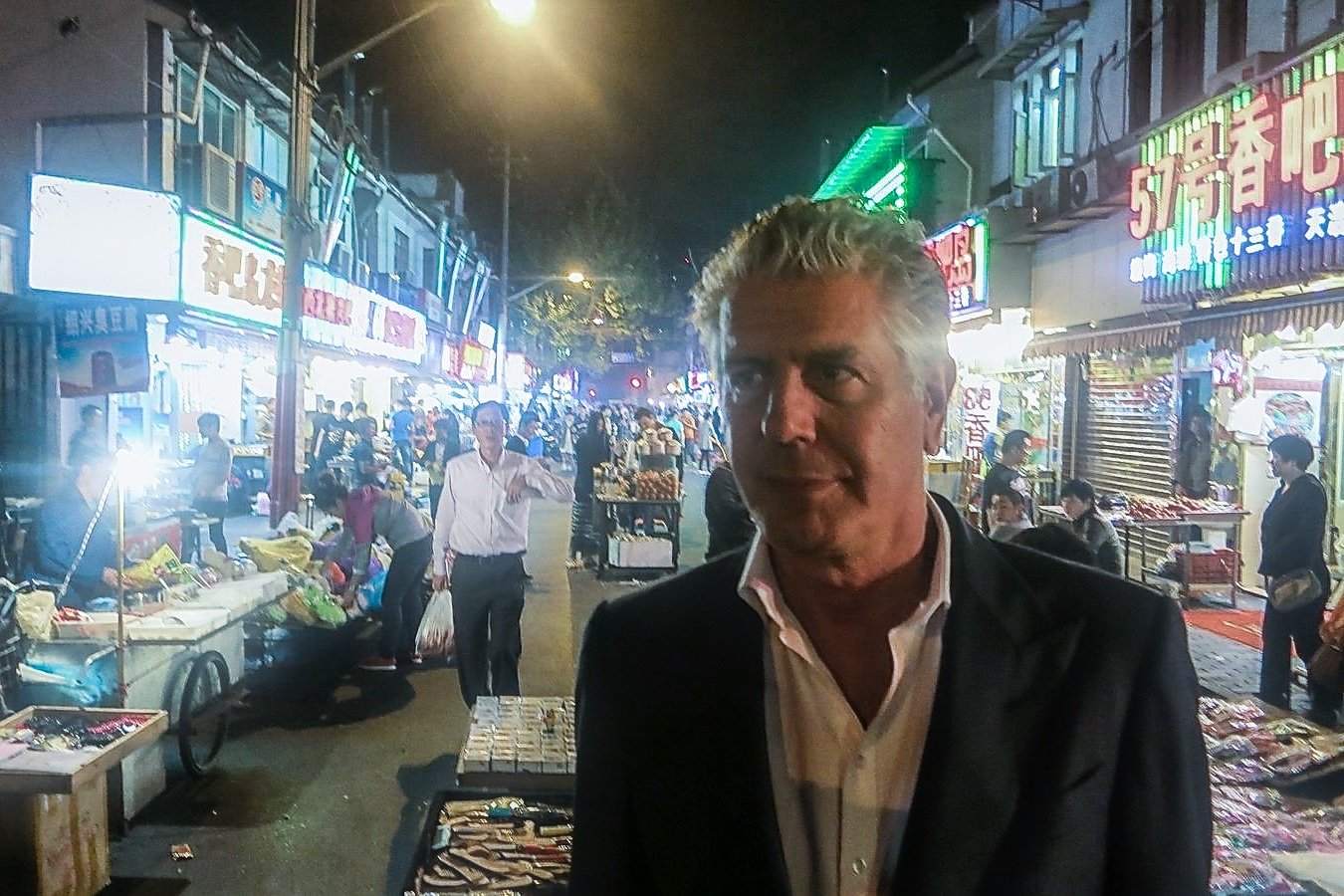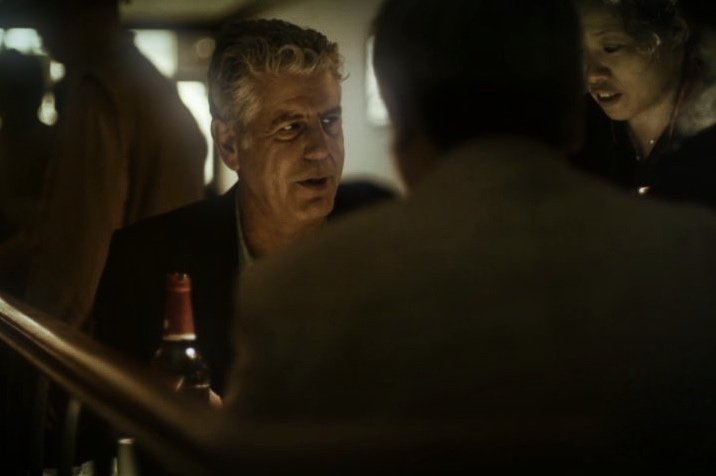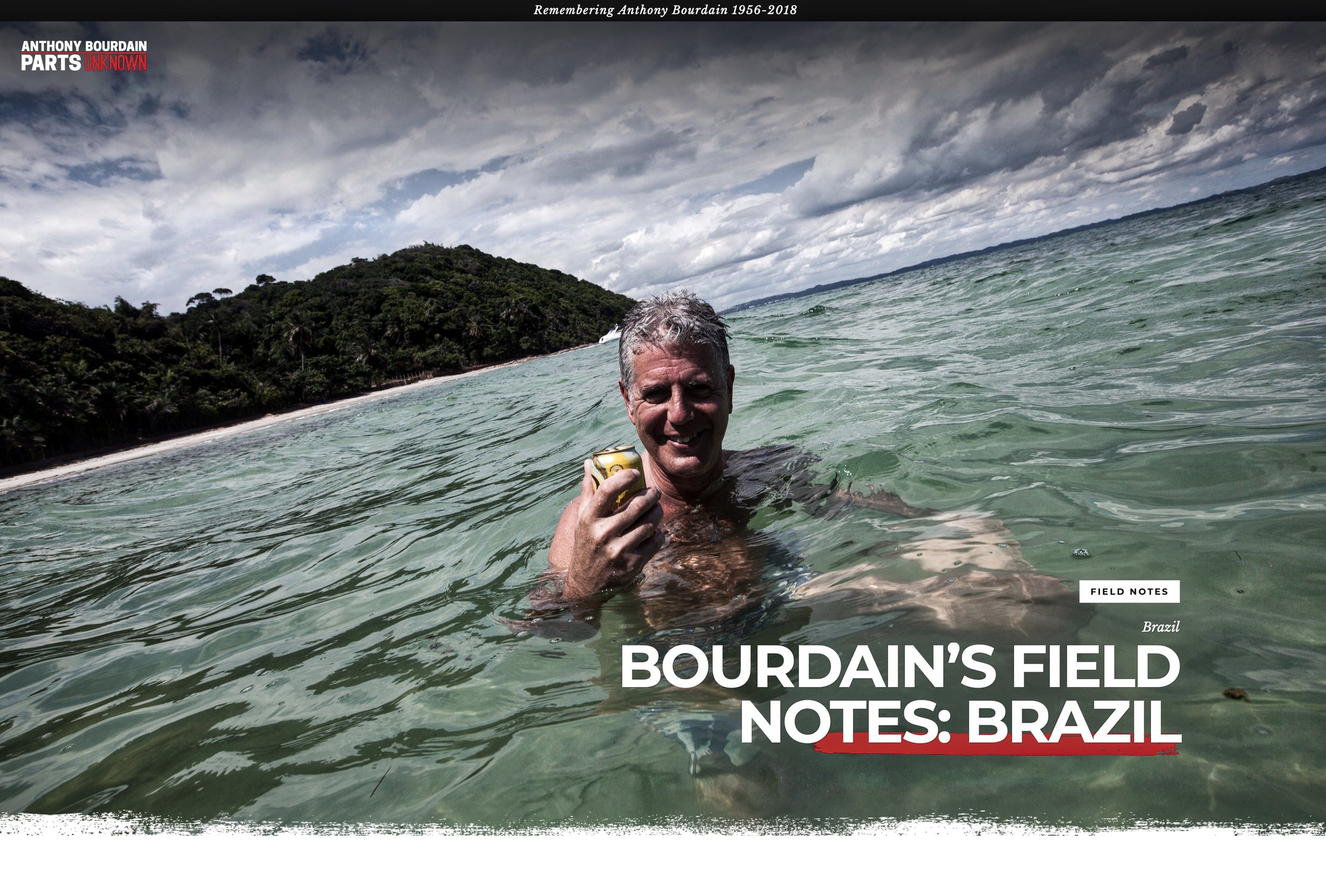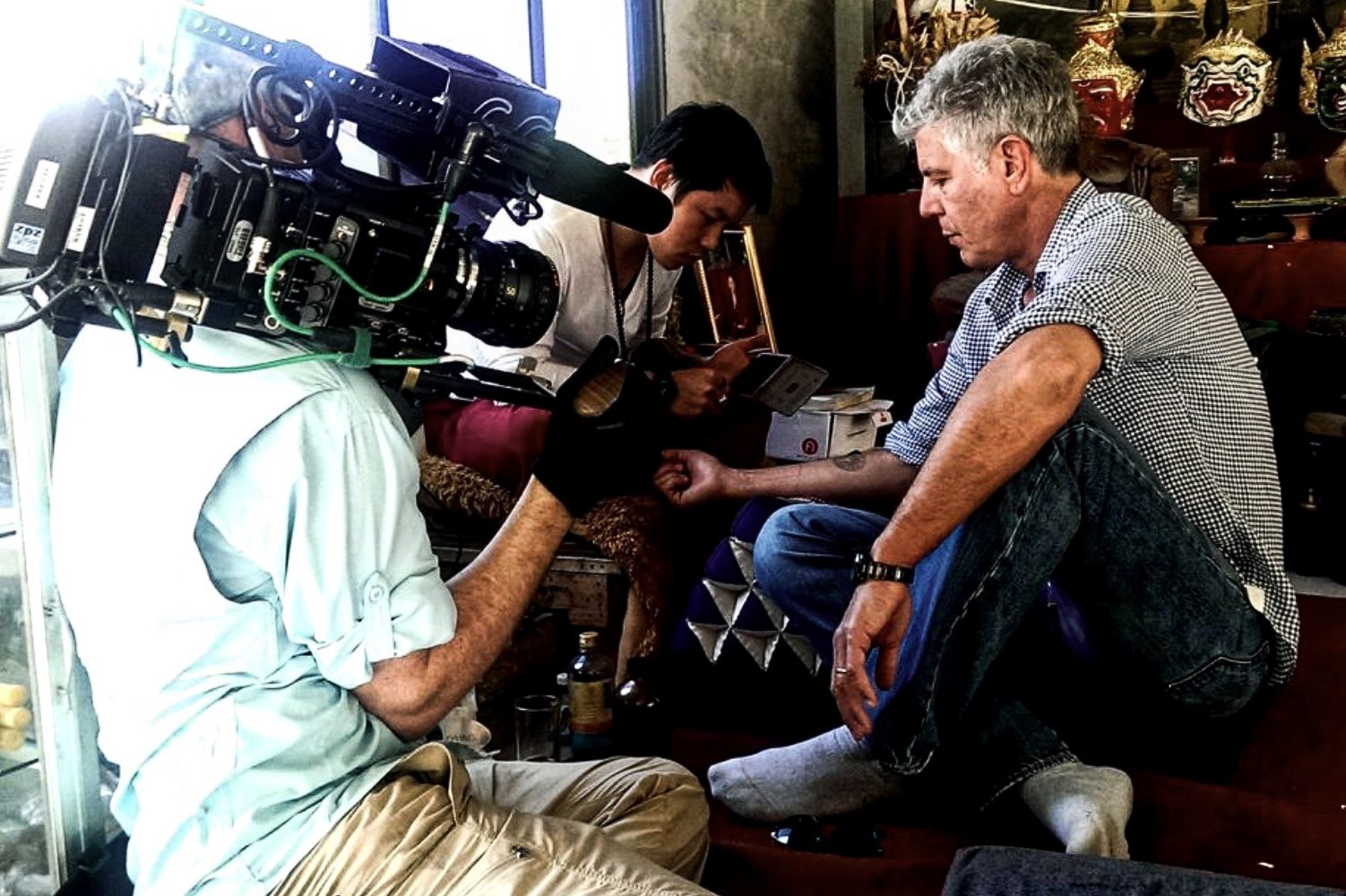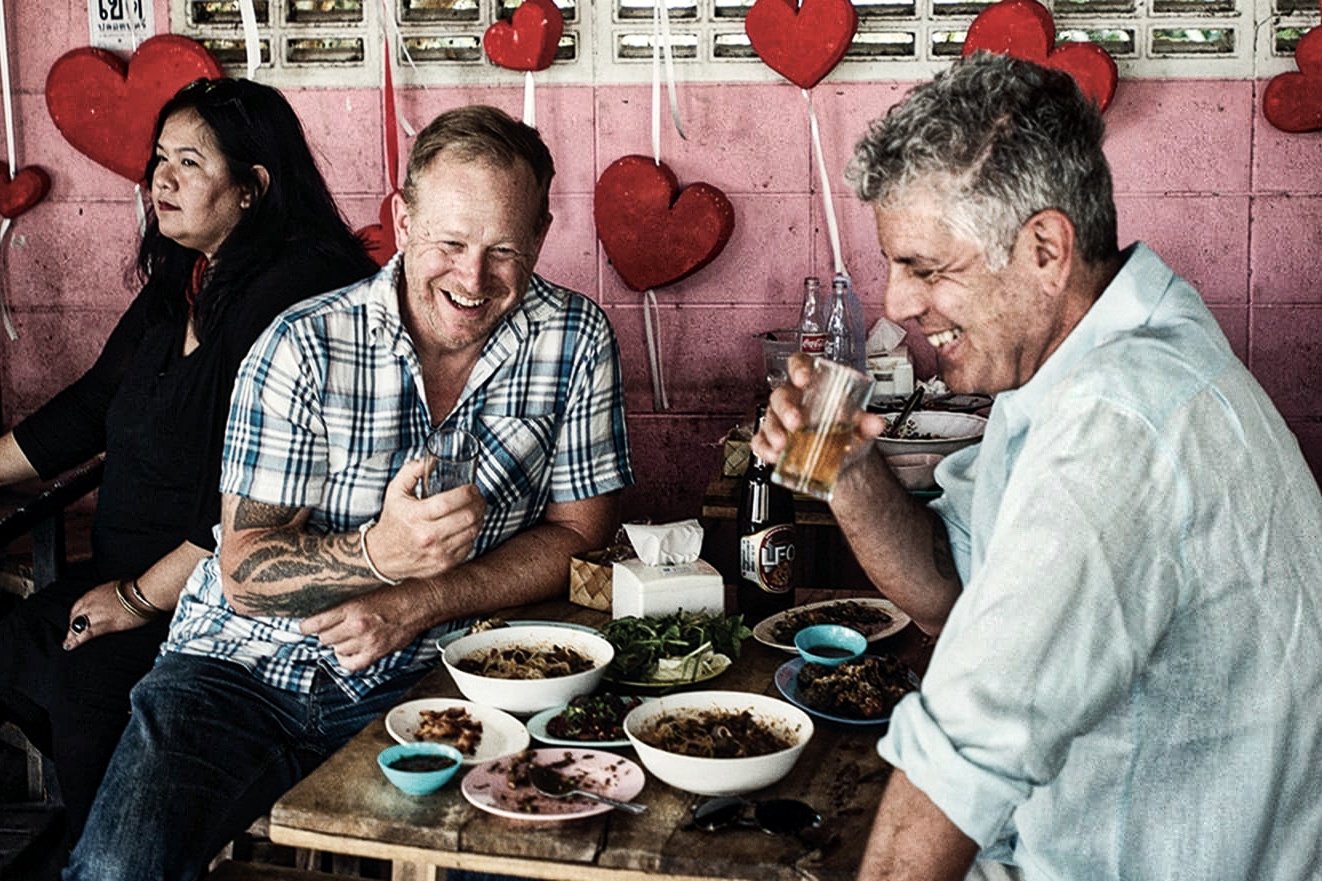“Fellow travellers, this is what you want,” Anthony Bourdain said at the outset of one of his most poignant, stirring episodes of Parts Unknown. “This is what you need. This is the path to true happiness and wisdom.” Good morning, Vietnam.
First of all, how good is this background music?
One of the first things— among many — that strikes one on first viewing Anthony Bourdain’s Parts Unknown episode Vietnam, the fifth episode of Parts Unknown’s breakout fourth season, is how sweet the sound be. None of this lazy, ratty, by-rote, AI-generated “music” that marks so many of today’s documentary programs — hello, Netfilx! — but rather a carefully crafted soundscape in the vein of so many of Bourdain’s Asia-based programs, which introduced music aficionados as well as foodies to the musical stylings of Lekha Rathnakumar, Wayan Udayana, Haitham Hamwi and Gokhan Kirdar. This ain’t Nickelback.
It’s worth remembering that Parts Unknown’s fourth season, which aired from September through November in 2014, featured Shanghai, the Bronx (“Hip hop came from nowhere else; it could have come from nowhere but the Bronx”), Paraguay, Vietnam, Tanzania, and Iran back-to-back-to-back — no fewer than three of the four episodes Bourdain himself was most proud of throughout Parts Unknown’s entire run.
Vietnam marked Bourdain’s seventh foray into Vietnam for the TV cameras, beginning with A Cook’s Tour (three episodes, starting in 2002) and winding through No Reservations (three episodes, dating from August 2005 through March 2010) but his first to the former Vietnamese imperial capital of Huê, the country’s cultural, culinary and spiritual heart, and scene of some of the fiercest, most intractable fighting of the Vietnam War.
That’s worth noting, too, because Bourdain managed to bridge the quiet reflection and soft-spoken beauty of central Vietnam in the first half and the harrowing yet strangely restorative second half that focuses on the pain and anguish of a jungle war replete with one of the heaviest bombing campaigns in the history of modern warfare, and how the entire region has managed to recover — and forgive — in the war’s aftermath.
That’s a hard line to walk, and yet it’s that very shift in tone that speaks to Bourdain’s remarkable ability to be all things to all people, without pandering to popular opinion or relying on cheap sentiment coupled with moral outrage. Vietnam is an astounding hour of television, and it’s easy to see how Bourdain won the hearts and minds of hardened, experienced war correspondents like Christiane Amanpour (Amanpour, lest we forget, was instrumental in reporting the Siege of Sarajevo, from Sarajevo itself during the mid-1990s, during the carnage of the Bosnian War — reporting that played no small part in Western leaders’ decision to intervene and end the war, by force if necessary.)
Vietnam’s first half finds Bourdain navigating the flat grey, mist-shrouded streets of central Huê on his trusty scooter (“One of the greatest joys of life is riding a scooter through Vietnam”) before pulling off the street on a whim to stop at a street stall and share a bowl of com hén, (clam rice, a Huê classic) with Vietnamese-American writer and author Nguyên Qui Dúc.
From there, Bourdain wends his way through a bowl of bún bò Huê (a spicy beef noodle soup Bourdain dubs “the greatest soup in the world”), and he’s clearly in his element, at peace with the world.
And then. A tonal shift, dramatic and unforgettable. Bourdain pays his respects at the tunnels of Vin Moc in Quang Tri province, ground zero in the battle for Huê in the bloody, bitter aftermath of the 1969 Tet Offensive, where at one point some 3,000 Huê civilians and alleged collaborators were massacred by North Vietnamese fighters, their bodies buried in a mass grave outside the city. One local witness, who lived through the worst of the worst, recalls his experiences of being born and living the first nine years of his life in the tunnels during some of the most intense bombing of the war (“The earth moved, but the noise was not loud. In here, it would not collapse. This side vibrated strongly. These two sides only gently. All was vibrating like that, but did not collapse.”)
Bourdain is introspective — the quiet American. How could anyone with a pulse and some semblance of a heart not help be introspective, given Americans’ involvement in the war.
Bourdain is a man of the future, though, and not just the past — it was one of his many saving graces — and you can’t help but sense that Vietnam, the country and not just the episode, has come full circle by the time the hour comes to a close.
“My place of dreams,” Bourdain began. “My spirit house. The city of ghosts.
“Huê is a place I've never been before, but it's still Vietnam, with all the things, the smells, the sounds, the details I love so much.
“I've been all over Vietnam, a place I feel a special connection to. My first love is a place I remain besotted with, fascinated by. … Hit (me) with some hot clam broth, and you're on your way. I'm back. Back in Vietnam, s**t-eating grin for the duration. A giddy, silly, foolish man beyond caring. A cold local beer. Huda, my preferred brand, in every way. Clams with pork cracklings. How could that not be good?
“This is the way so many of the great meals of my life have been enjoyed. Sitting in the street, eating something out of a bowl that I'm not exactly sure what it is. Scooters going by. So delicious. … Where have you been all my life?”
“So we wish you have a good trip,” Bourdain is told. “A good fly. Will you come back after you return to New York?”
Bourdain: “I'll come back to Vietnam, always. Cheers, everybody, and thank you, all of you, for all your help.”
And then, in voiceover:
“This is who came out of the ground, out of the jungle, the darkness, when it was all over.
“And this is what they did.”
And how.


